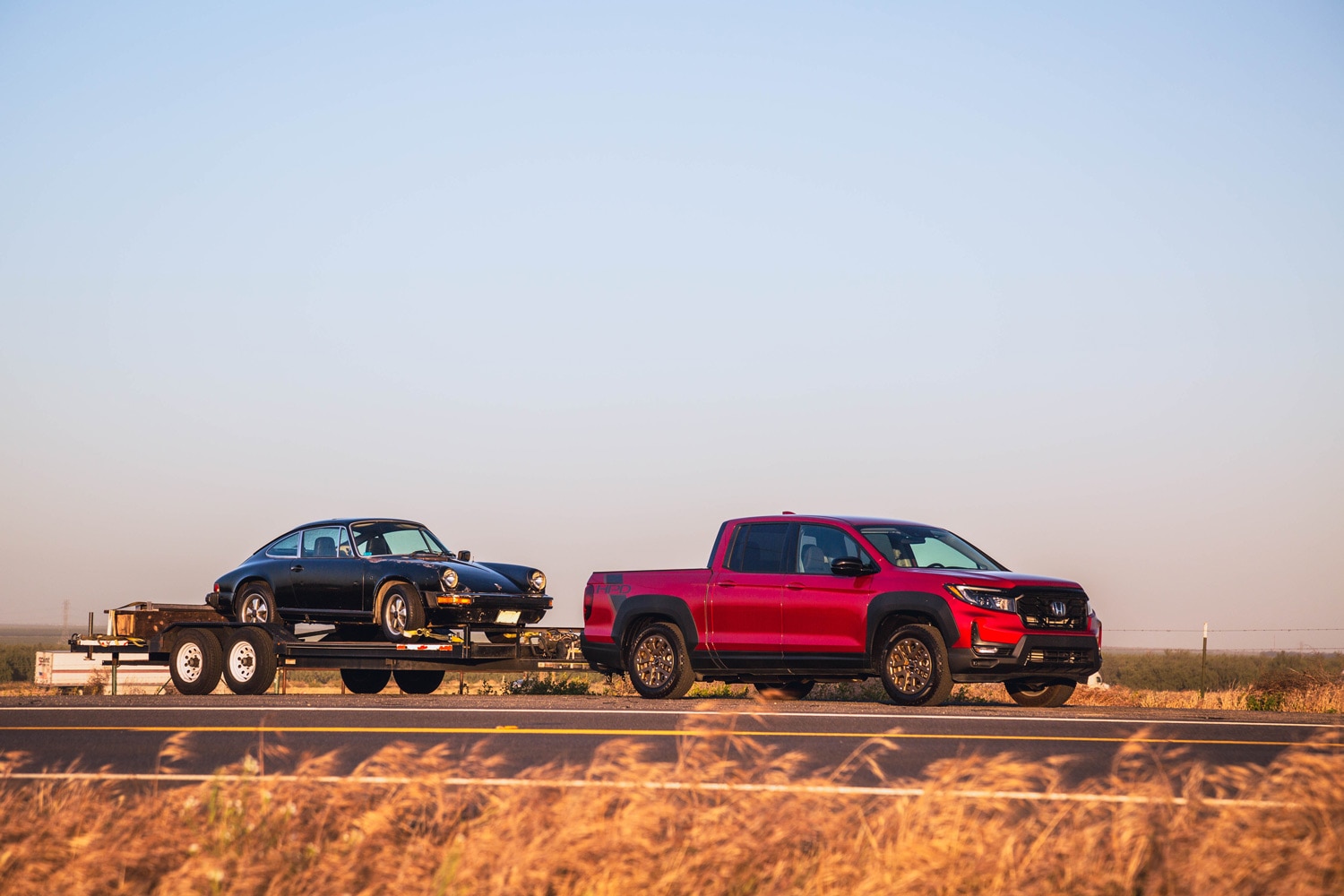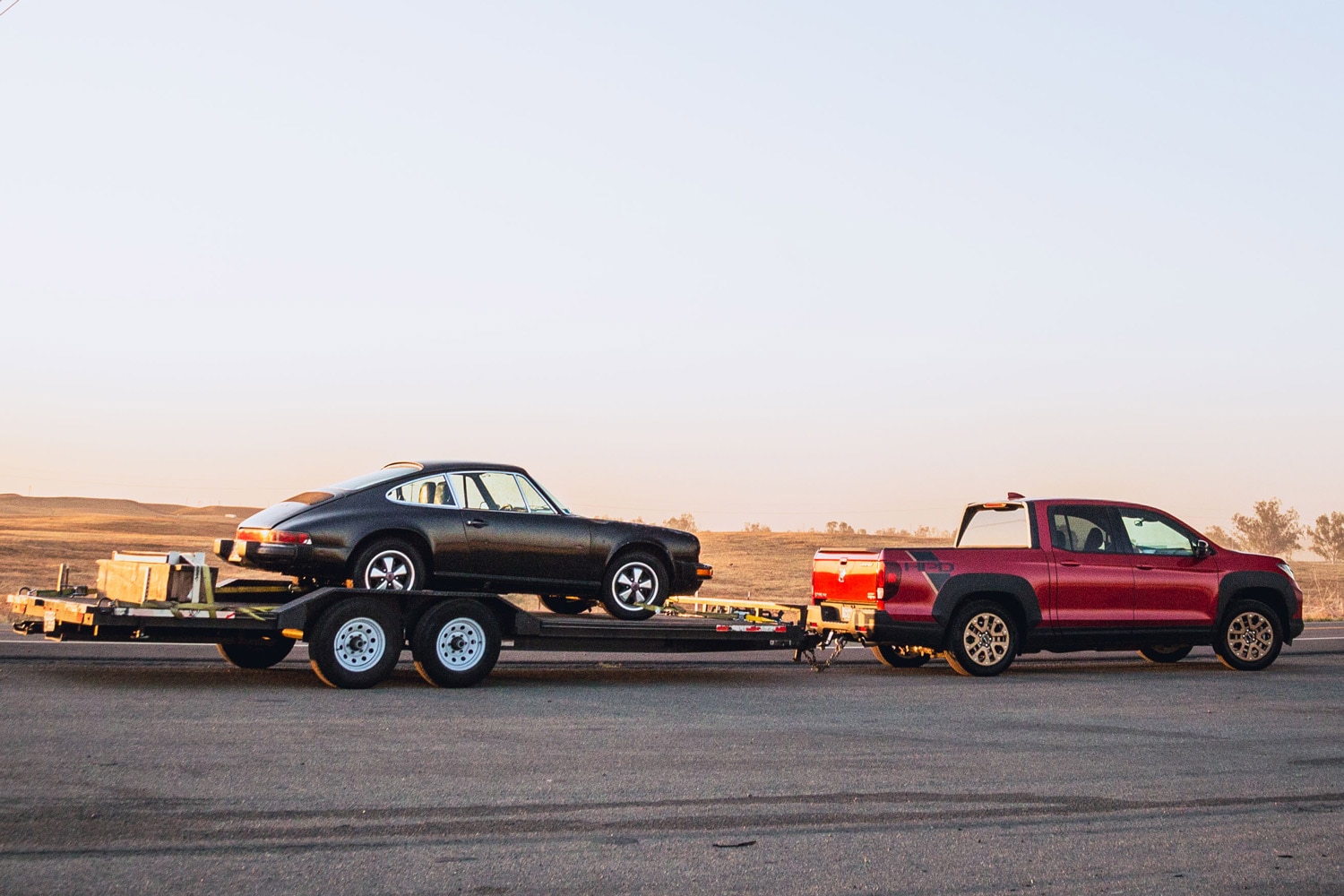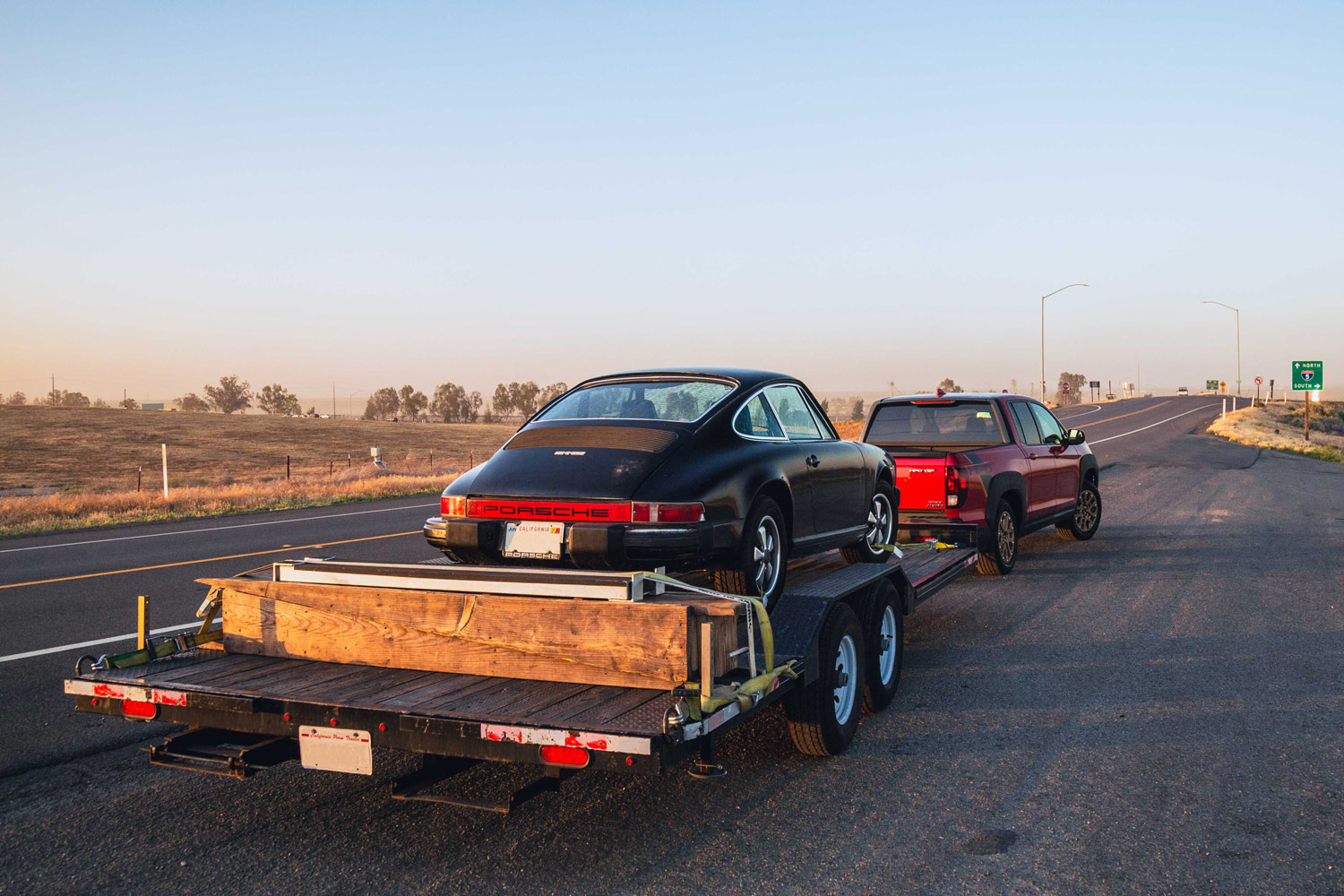How to Properly Load a Trailer
Strap it down and keep an eye on where you put the weight.
 Capital One | Manuel Carrillo III
Capital One | Manuel Carrillo III
Article QuickTakes:
Towing a trailer can dramatically increase the utility of your vehicle, but it's crucial to load up as safely as possible to prevent unwanted highway drama. Knowing how to distribute the weight of what you're carrying, how to strap it down, and what best practices you can use during load-up ensure a stress-free trip with a trailer attached.
Proper Weight distribution on a Trailer matters
There are two important weight distribution concerns to consider when loading a trailer: tongue weight and weight distribution. Tongue weight is the amount of weight that is bearing down directly on the hitch and transferring to the rear axle. In general, this should be no more than 15% of the trailer's total weight. Check your owner’s manual to find your vehicle’s maximum tongue-weight capacity. You can measure tongue weight with a tongue-weight scale, a specialty measuring device that mounts on a jack. You can also calculate your tongue weight at a commercial scale by subtracting the weight of the trailer as it's hitched to your vehicle from the weight of the trailer on its own.
Next, it's important when loading a trailer that weight should be biased toward the front. If too much weight shifts toward the rear, it can create a pendulum effect while driving that can cause the trailer to sway. Balance that weight between the trailer’s tongue and axles for maximum stability and control.
 Capital One | Manuel Carrillo III
Capital One | Manuel Carrillo III
Don't overload your vehicle
Your vehicle has a towing capacity based on its gross vehicle weight rating (GVWR). That's the maximum weight it can transport, including passengers, internal cargo, the trailer, and the trailer's cargo. You can find your vehicle's GVWR on the door jamb sticker or in the manual.
Subtracting the tongue weight of your trailer plus its cargo from the GVWR tells you how much capacity remains for passengers and other cargo. Keep below this rating while towing.
Tie everything down
If cargo shifts while underway, it can destabilize your trailer and create a dangerous driving situation. Using ratchet-style tie-downs to strap everything to the trailer's anchor points should yield a better, and safer, result than ropes or bungee cords and helps avoid any nasty surprises out on the road. Even if an item seems too heavy to move on its own, it's worth strapping it down for safety's sake.
 Capital One | Manuel Carrillo III
Capital One | Manuel Carrillo III
This strategy applies even if you are carrying a vehicle on your trailer. In addition to using the parking brake, proper tie-downs are essential to keep a car or truck from moving on a trailer. If possible, use straps that go over the wheels themselves, allowing the vehicle’s suspension to absorb movement while sitting on the trailer.
Hitch up before you load up
Connect the trailer to your vehicle before loading the trailer. Hitching up adds stability to the trailer as you walk cargo on and off, preventing it from moving unexpectedly. A scale can show you how load distribution affects tongue weight in real time.
When your cargo is a vehicle, the same advice is even more prudent, since loading and unloading something much heavier is far safer when the trailer doesn’t move unexpectedly.



